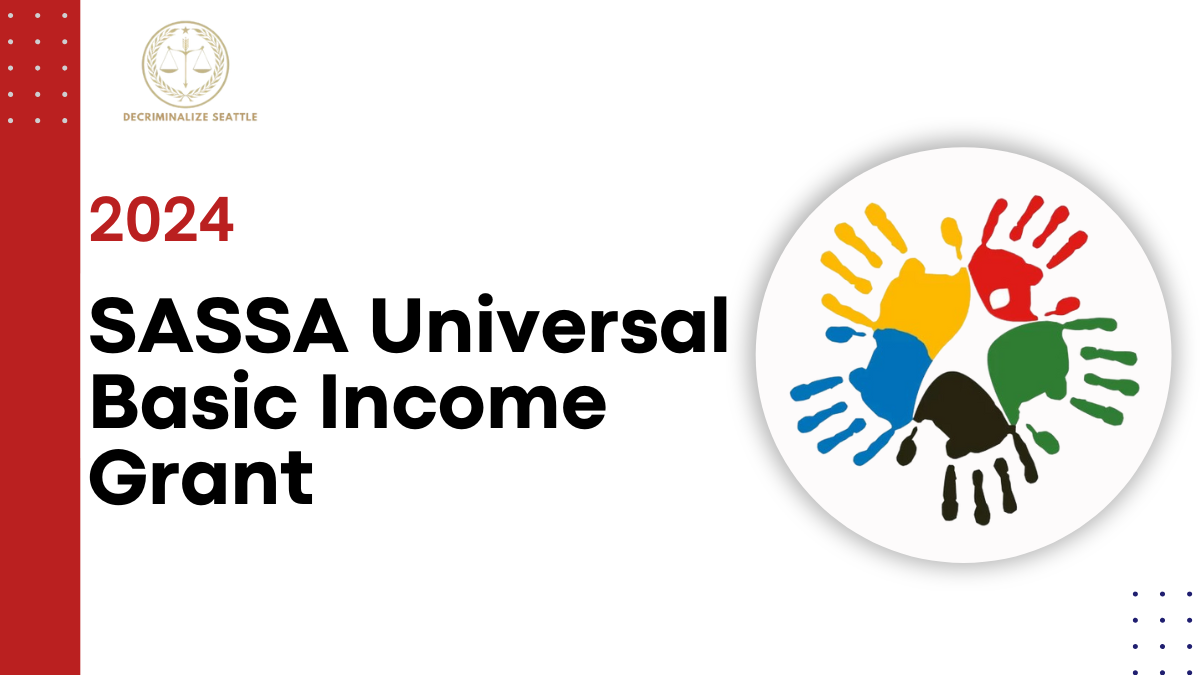South Africa is undergoing its most profound political shift since the end of apartheid, following a landmark general election on May 29, 2024, in which the African National Congress (ANC) lost its majority. This historic event has triggered a period of complex negotiations, as the ANC and its political rivals work to form a coalition government. The outcome of these negotiations will likely shape the country’s political and economic landscape for years to come.
2024 SASSA Universal Basic Income Grant
One of the most significant proposals emerging from the post-election landscape is the ANC’s plan to transform the COVID-19 relief grant into a Universal Basic Income (UBI). A week before the election, the ANC announced its intent to implement UBI within two years if it secures a leading role in the new government.
If successful, South Africa would become the first country to introduce a full-fledged UBI system, providing regular payments to all adults aged 18 to 59, regardless of their employment status. This ambitious policy would address income inequality and provide a stable financial safety net for all citizens.
Formation of a Coalition Government
In the coming weeks, South Africa’s political parties will engage in intense talks to form a new coalition government. The process is expected to be challenging, with many differing opinions among the parties involved. However, despite their ideological differences, most major parties, including the ANC and its primary rival, the Democratic Alliance (DA), agree on one key issue: the importance of maintaining or even expanding income support for adults.
This includes continuing the monthly COVID-19 relief payments to South Africa’s poorest households, which has become a lifeline for millions.
Current State of Social Relief in South Africa
Presently, South Africa’s Social Relief of Distress (SRD) grant targets individuals whose income falls below the food poverty line. The ANC’s proposal would expand this support by gradually increasing the income threshold, allowing more adults to qualify. However, the current system uses outdated poverty metrics from 2021, excluding many who are in need due to inflation and rising living costs. The plan to widen the SRD’s reach would be a major step toward addressing these gaps.
Historical Context and Global Perspectives on UBI
The concept of UBI has been discussed globally for decades as a possible remedy for income inequality and the challenges posed by automation. Figures such as Elon Musk have advocated for UBI as a solution to job losses from technological advances, while civil rights leader Martin Luther King Jr. championed it as a tool to eradicate poverty. UBI gained significant traction during the COVID-19 pandemic, when numerous countries introduced emergency financial support to help their citizens weather the economic fallout.
Economic Benefits of UBI
Research indicates that direct cash transfers to low-income households can positively impact economic growth. Kelle Howson, a senior researcher at the Institute for Economic Justice (IEJ) in Johannesburg, highlights that these payments boost local economies by increasing spending, particularly on essential goods like food.
According to the IEJ, about 93% of SRD recipients use the money primarily for basic needs, underscoring the critical role these grants play in daily survival. UBI could stimulate economic activity by extending financial support, particularly in underserved communities.
International Case Studies Supporting UBI
Various international case studies have demonstrated the potential benefits of UBI. In Kenya, a large-scale UBI trial conducted by the non-profit GiveDirectly showed that recipients used the funds to improve their lives in meaningful ways, such as saving for large purchases, improving their diets, and starting small businesses. In Spain, during the pandemic, an anti-poverty scheme provided €1,015 per month to 850,000 households, helping to reduce financial distress.
Similarly, in the U.S., the CARES Act offered $1,200 payments to adults earning below a certain threshold, while the UK’s furlough scheme distributed £100 billion to those impacted by the pandemic. These examples illustrate how direct financial support can mitigate poverty and promote economic resilience.
Post-Pandemic Policy Shifts
After the pandemic waned, several nations reverted to implementing austerity measures to offset the substantial borrowing incurred during the crisis. In the case of the UK, a study conducted by the National Institute of Economic and Social Research revealed that maintaining the heightened universal credit payments could have notably lessened extreme poverty.
Nevertheless, discontinuing these payments resulted in a marked increase in destitution, pushing a larger number of individuals into severe financial difficulties.
South Africa’s Unique Approach
Unlike many other nations, South Africa has continued to provide COVID-19 relief grants, despite pressure to impose stricter financial controls. When the government temporarily halted the SRD grants in April 2021, it led to widespread unrest and rioting. In response, the government reinstated the grants by August 2021, reflecting these payments’ crucial role in maintaining social stability.
However, the current SRD system has notable shortcomings. The grants cover only about half of what is required to meet the food poverty line, leaving recipients struggling to meet even their basic nutritional needs. Additionally, millions of eligible individuals are excluded from receiving these payments each month due to application process issues and the means-testing system’s flaws.
Criticism of the Current System
Advocacy groups like the IEJ and the #PayTheGrants campaign have heavily criticized the current relief system. These groups argue that the digital application process and automated means-testing mechanisms often exclude deserving individuals, particularly those without reliable internet access or digital literacy.
Elizabeth Raiters, an unemployed South African and vocal campaigner, has spoken out about the daily challenges faced by those denied much-needed support. In response to these systemic issues, the IEJ has taken legal action against the government, arguing that the regulations unfairly prevent millions from accessing the financial aid they need to survive.
Looking Forward
As South Africa navigates this critical moment of political and economic transition, the potential implementation of UBI offers a glimpse of hope for a more inclusive and equitable future. However, its success will depend on overcoming both political hurdles and the logistical challenges of reforming the existing social support framework. Regardless of the outcome, the political realignment of 2024 signals a new chapter in South Africa’s ongoing struggle to achieve economic justice and stability.
Click here to know more.

Arvind is an avid automobile enthusiast who is passionate about all things on wheels. From the latest car models to classic vintage rides, I love exploring the automotive world’s intricate details and engineering marvels. With years of experience in test-driving, reviewing, and analyzing cars, I provide readers with comprehensive insights and honest opinions.
